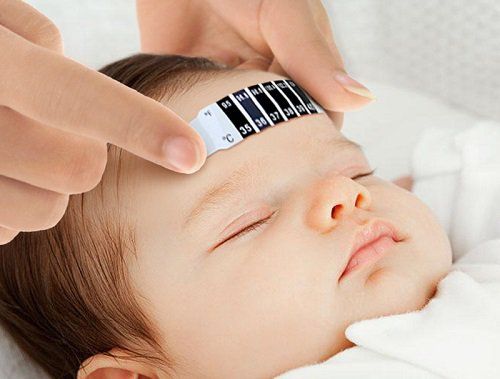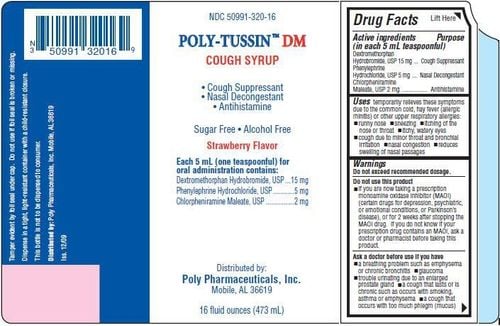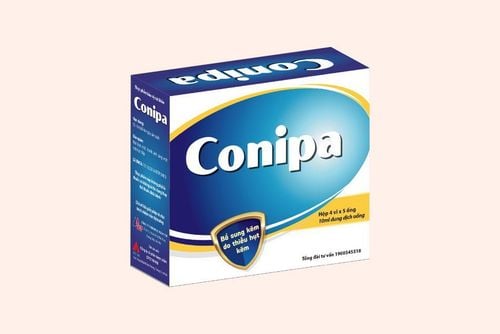This is an automatically translated article.
During the period from weaning until the age of 3, children are very susceptible to getting sick with a high frequency, causing many parents to have headaches and worries. The reason for this phenomenon is that the baby is going through the immune gap phase. So what is the immunity gap and how should parents protect and “fill” that gap in their children?
Video content is professionally consulted by Dr. Pediatric Center - Vinmec Times City International Hospital
1. Learn about the immune gap in children
The immune gap may be a new concept for many parents, but this is a period that greatly affects the health of children.
When born, the baby's body already exists IgG antibodies from the mother to the baby during pregnancy. After that, babies continue to receive these antibodies through breast milk through a passive natural immune system, which protects them from infections during the first months of life.
However, IgG antibodies will start to decline very quickly after 6 months. From 6 months old onwards is also the age when children enter the weaning stage. Breastfeeding time and antibodies in breast milk both decrease while it takes 3 years for the child's active immune system to mature, able to fight off infections.
Thus, in the period from 6 months to 3 years old, the child's immune system is weakened, forming the "immune gap period".

2. Common child health problems in the period from 6 months to 3 years old
While in the immune gap, children can have some health problems.
First: When in the stage of the immune gap, the passive immunity from the mother to the baby has decreased, but the children themselves have not yet completed the active immune system to protect themselves. Therefore, at this age, children become very sensitive to infectious pathogens from the outside environment, leading to frequent diarrhea, respiratory infections, or allergies... Second: In addition to the decline in children's resistance during this period, there is an increase in exposure to the outside environment (children begin to learn to roll, crawl, walk... explore the world with all kinds of activities). sense...). This is an opportunity for pathogens to attack the child's body, leading to the baby being very susceptible to disease. Without proper care, the baby may experience a weakened immune system, a malabsorption digestive system, stunting and poor brain development. In fact, helping children go through the "immune gap" will be very simple, as long as the mother understands correctly and enough about this stage and builds children's health protection habits. Here, we offer breastfeeding mothers a few useful solutions:
Babies should be exclusively breastfed for the first 6 months, breast milk not only provides adequate nutrients for the baby's development but also an abundant supply of antibodies, including IgG (IgG), IgA (IgA),... form a natural barrier to help children fight pathogens. Even when the baby enters the weaning stage, the mother should still continue to feed the baby breast milk, do not force the baby to wean too early because of busy work. Between the ages of 6 months and 3 years, children begin to have contact and explore with the outside world. Therefore, it is very important to keep the living environment clean, pollution-free, smoke-free, ... also very important. In addition, parents should also regularly bathe and clean the baby's body to avoid the risk of infection caused by viruses and bacteria. Besides, proper nutrition is a way to build a child's own immune barrier, the child's weaning diet is optimal when it balances the groups of substances: protein, carbohydrates, fats, vitamins and minerals. mineral . Micronutrients and vitamins such as: A, D, C, zinc, iron, selenium, calcium, ... play a very important role in strengthening the immune system, helping children develop comprehensively. Mothers should pay attention to adding these micronutrients in their baby's daily meals.
The best source of vitamins and minerals is from food, but not all babies absorb well and in the recommended amount, then parents can give children additional products. contains vitamins A, C, D, zinc, iron, selenium... to help children eat well, enhance resistance.
Whether supplementing nutrition for children through food or functional foods, parents need to be calm and persistent. Especially when using functional foods, it is advisable to consult a doctor about dosage, do not give children multiple types or change continuously different types of products.
For more nutritional knowledge and child care for each age, parents should regularly visit the website vimec.com and make an appointment with the leading doctors, pediatric and nutrition experts of the National General Hospital. Vinmec when needing advice on children's health.
Please dial HOTLINE for more information or register for an appointment HERE. Download MyVinmec app to make appointments faster and to manage your bookings easily.













